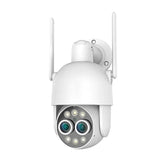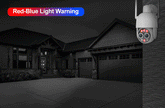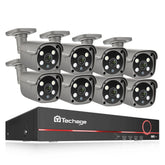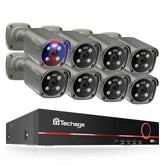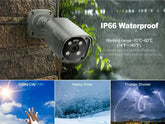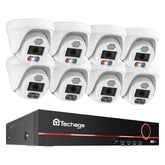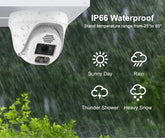Können batteriebetriebene Kameras wirklich rund um die Uhr aufzeichnen?
Im Bereich der Sicherheit zu Hause und im Unternehmen haben sich Kameras deutlich weiterentwickelt und bieten beispiellosen Komfort und Sicherheit. Unter den verschiedenen Arten von Sicherheitskameras, die heute erhältlich sind, haben batteriebetriebene Kameras aufgrund ihrer kabellosen Freiheit und einfachen Installation enorm an Popularität gewonnen. Es bleibt jedoch die Frage: Können diese batteriebetriebenen Geräte wirklich eine kontinuierliche Aufzeichnung rund um die Uhr unterstützen? Lassen Sie uns tiefer in dieses Thema eintauchen und untersuchen, was batteriebetriebene Kameras sind, warum sie möglicherweise Probleme mit der Aufzeichnung rund um die Uhr haben und welche Alternativen es für diejenigen gibt, die eine ununterbrochene Überwachung wünschen.
Was sind batteriebetriebene Kameras?
Batteriebetriebene Kameras sind , wie der Name schon sagt, ausschließlich auf wiederaufladbare Batterien als Stromquelle angewiesen. Im Gegensatz zu herkömmlichen kabelgebundenen Kameras, die Strom aus einer Steckdose oder einem speziellen Netzteil beziehen, bieten diese Geräte eine beispiellose Flexibilität bei der Platzierung. Sie können praktisch überall montiert werden, ohne dass Kabel verlegt oder Löcher für Steckdosen gebohrt werden müssen. Dies macht sie ideal für Außenbereiche, abgelegene Standorte oder überall dort, wo eine kabelgebundene Installation unpraktisch oder ästhetisch unerwünscht ist.
Batteriebetriebene Kameras sind in der Regel mit erweiterten Funktionen wie Bewegungserkennung, Nachtsicht und Cloud-Speicherfunktionen ausgestattet, sodass Benutzer ihr Eigentum von jedem Ort aus überwachen können, an dem eine Internetverbindung besteht. Die Abhängigkeit von Batterien bringt jedoch auch bestimmte Einschränkungen mit sich, insbesondere bei der kontinuierlichen Aufzeichnung.
Warum unterstützen Batteriekameras keine Aufzeichnung rund um die Uhr?
Der Hauptgrund, warum batteriebetriebene Kameras Probleme mit der 24/7-Aufzeichnung haben, liegt in den inhärenten Einschränkungen der Batterietechnologie. Selbst die fortschrittlichsten wiederaufladbaren Batterien haben eine begrenzte Kapazität und können nur eine bestimmte Ladungsmenge speichern. Dauerhafte Aufnahmen, insbesondere in hoher Auflösung oder mit erweiterten Funktionen wie aktivierter Nachtsicht, verbrauchen viel Strom und entladen die Batterie schnell.
Darüber hinaus wird die Batterielebensdauer durch Umweltfaktoren wie extreme Temperaturen und die Häufigkeit von Bewegungserkennungsereignissen, die die Aufzeichnung auslösen, weiter beeinflusst. Bei kaltem Wetter kann die Batterieleistung erheblich nachlassen, was die Gesamtlaufzeit verkürzt. Daher sind die meisten batteriebetriebenen Kameras so konzipiert, dass sie in einem bewegungsgesteuerten oder ereignisbasierten Aufzeichnungsmodus arbeiten, in dem sie nur aufzeichnen, wenn etwas Ungewöhnliches passiert, wodurch die Batterielebensdauer verlängert wird.

Welche Überwachungskameras unterstützen eine 24-Stunden-Aufzeichnung?
Für diejenigen, die eine unterbrechungsfreie Überwachung benötigen, sind kabelgebundene Überwachungskameras , WLAN-Kameras oder Kameras mit Power-over-Ethernet-Funktionen (PoE) die geeigneteren Optionen. Diese Kameras beziehen Strom direkt aus einer Steckdose oder einer zentralen Stromversorgung, sodass Sie sich keine Gedanken über die Batterielebensdauer machen müssen. Sie können kontinuierlich aufzeichnen, 24 Stunden am Tag, 7 Tage die Woche, ohne Unterbrechung. Und ein komplettes Überwachungskamerasystem unterstützt auch die Aufzeichnung rund um die Uhr.
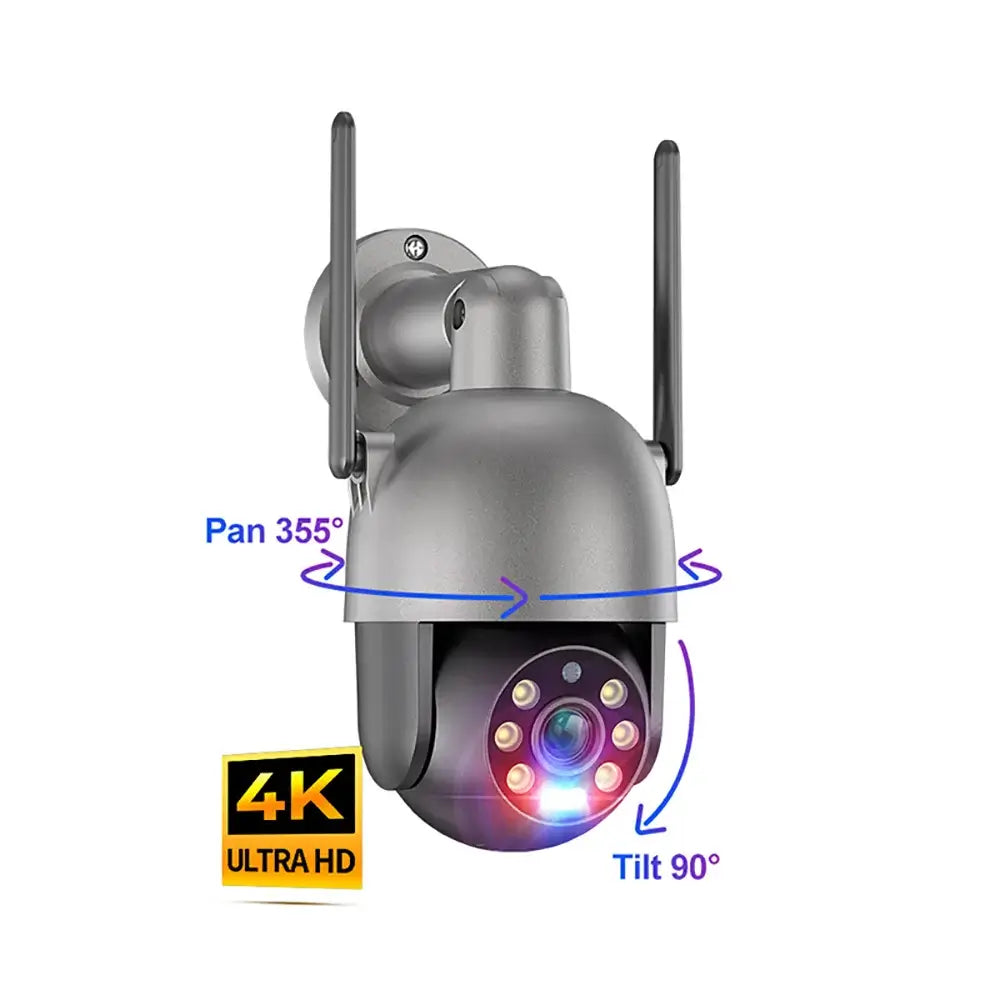
4K 2K PT WiFi Kamera Gary mit Bewegungsscheinwerfer
Sie können die Kameras per App fernsteuern, um jeden Winkel Ihres Grundstücks ohne tote Winkel zu sehen.
Mehr erfahrenZusätzlich zu kabelgebundenen Kameras bieten einige Hersteller solarbetriebene oder hybride Überwachungskameras an, die Batteriestrom mit Solarmodulen kombinieren. Diese Systeme nutzen die Kraft der Sonne, um die Batterien aufzuladen, und ermöglichen so längere Aufnahmezeiten, selbst an abgelegenen Orten. Auch wenn sie bei der Daueraufzeichnung möglicherweise nicht ganz so zuverlässig sind wie kabelgebundene Kameras, bieten sie eine nachhaltigere und umweltfreundlichere Alternative für die Außenüberwachung.
So stellen wir beispielsweise die neue „ Techage 4G-Kamera mit Akku und Solarbetrieb“ vor, die einen robusten 9000-mAh-Akku mit einem 5-W-Solarpanel für einen nachhaltigen Betrieb kombiniert. Diese Kamera kann rund um die Uhr aufzeichnen, wenn zwei Bedingungen erfüllt sind: Das Gerät wird aktiv über das Solarpanel aufgeladen und sein Akkustand bleibt über 65 %. Diese Kombination aus Hochleistungsakku und Solarenergie macht die Techage 4G-Kamera zu einer hervorragenden Wahl für die Außenüberwachung, da sie sowohl Zuverlässigkeit als auch Umweltfreundlichkeit bietet.
Abschluss
Batteriebetriebene Kameras bieten zwar beispiellose Flexibilität und Komfort, ihre Abhängigkeit von Batterien begrenzt jedoch ihre Fähigkeit, rund um die Uhr Aufnahmen zu unterstützen. Für diejenigen, die eine unterbrechungsfreie Überwachung benötigen, sind kabelgebundene Kameras oder Kameras mit alternativen Stromquellen wie PoE oder Solarmodulen die bessere Wahl. Letztendlich hängt die Wahl zwischen batteriebetriebenen und kabelgebundenen Kameras von den individuellen Bedürfnissen, dem Budget und den spezifischen Anforderungen des Überwachungsaufbaus ab. Wenn Sie die Einschränkungen und Vorteile der einzelnen Typen kennen, können Sie eine fundierte Entscheidung treffen, die Ihren Sicherheitsanforderungen am besten entspricht.




